24 Luglio 2020
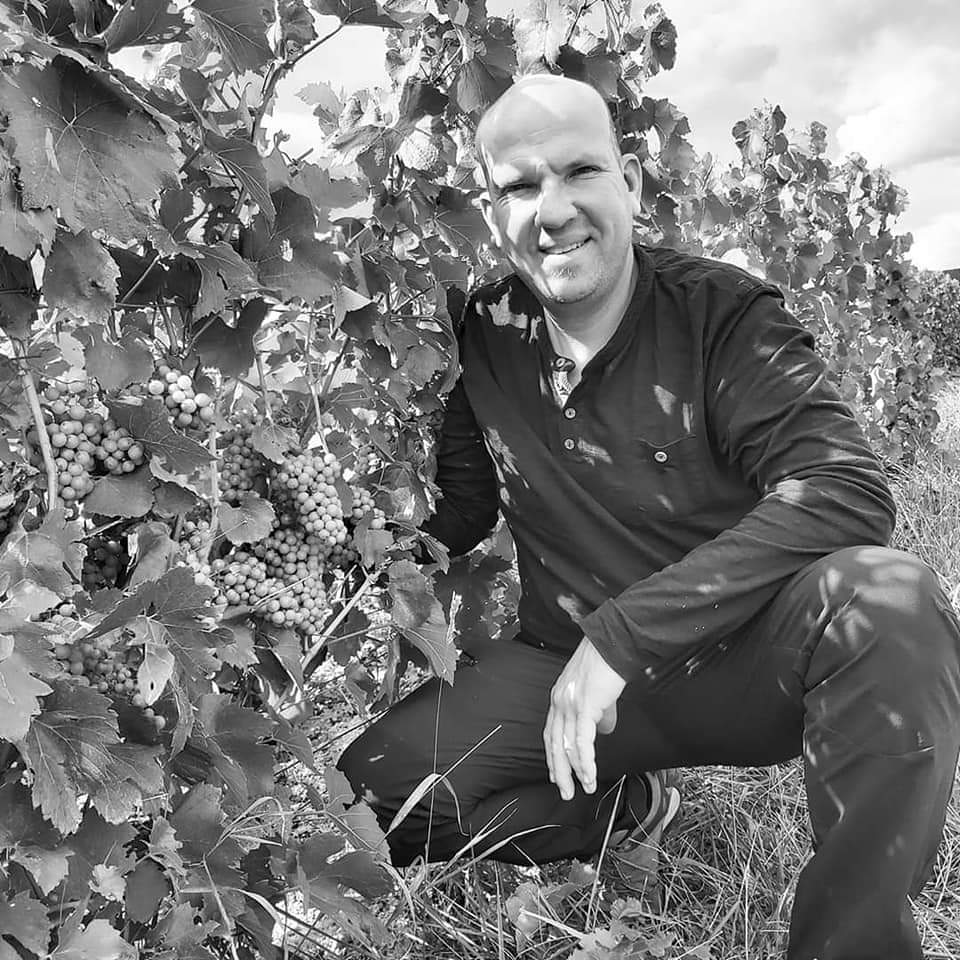
Champagne Benoit Munier: “Un atto d’amore”
Benoit Munier è nato per essere un vigneron, come lui stesso dice, coniugando una rigorosa etica del lavoro con la ricerca dell’eccellenza in una vocazione che sua moglie Séverine descrive come “un atto d’amore”. L’azienda vinicola Munier sita a Cuis attinge da 4 appezzamenti Grand Cru per complessivi 1,6 ettari nella Côte des Blancs da cui si producono circa 7.000 bottiglie all’anno, quasi esclusivamente da uve Chardonnay.
Benoit Munier ricorda le radici della sua famiglia nella Champagne, a partire dal bisnonno Constant Gendron, che negli anni ’30 acquistò un appezzamento e piantò un vigneto a Bouzy. Nonostante Bouzy sia nota per il Pinot Nero, Constant sclse di impiantare lo Chardonnay, creando un precedente che sembra essere diventato un tratto familiare: un naso per lo Chardonnay e il gusto per il Blanc des Blancs. Negli anni Settanta, la madre di Benoit, Marie-Claude, nipote di Constant Gendron, sposò Patrice Munier e si stabilirono nel villaggio di Cramant dove lavoravano per le maison di Champagne, investendo nel contempo i loro risparmi in piccoli appezzamenti nella Côte des Blancs.
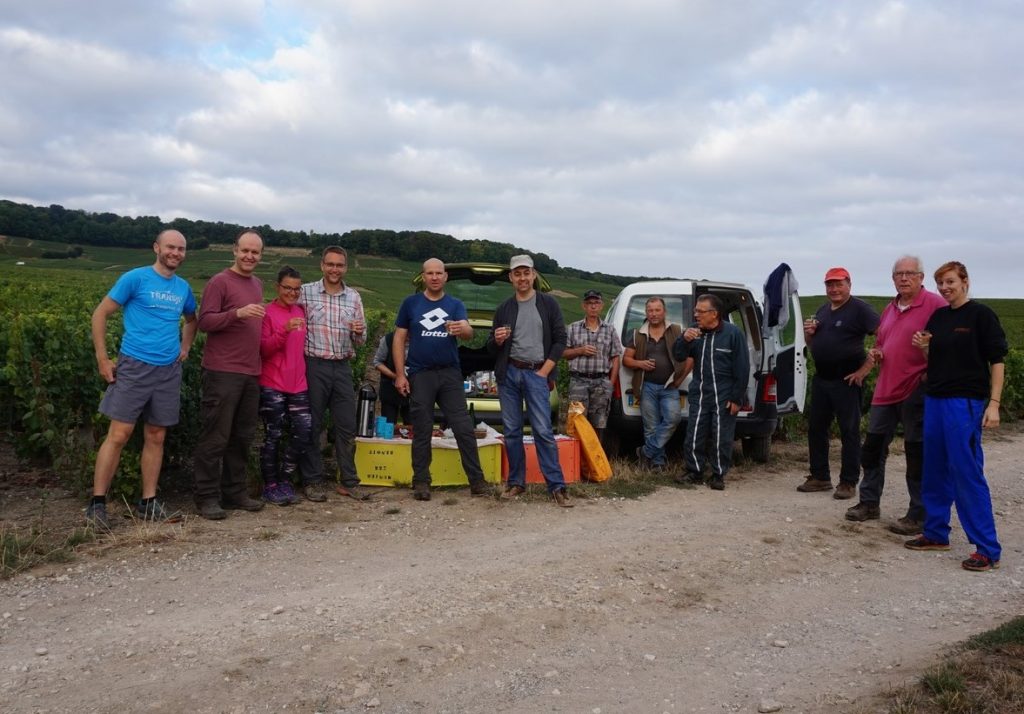
“Sono cresciuto in questa atmosfera vinicola, seguendo il ritmo delle stagioni. Ho osservato, ho ascoltato, ho aiutato nei vigneti e nelle cantine lavorando con la gente del villaggio, assimilando gradualmente lo spirito e le competenze che si tramandano di generazione in generazione. Se per la maggior parte dei bambini settembre significa tornare a scuola, per me è associato a una parola magica: vendange!
Benoit ricorda con affetto “… la raccolta in famiglia, le merende nei vigneti, il trasporto delle uve ai torchi e il bicchierino di succo d’uva appena spremuto sono momenti di vita ancorati in me. Così, a 13 anni, quando è arrivato il momento di scegliere una scuola, era ovvio che mi sarei iscritto al CCPPA di Avize, ora meglio conosciuto come Avize Viti Campus”.
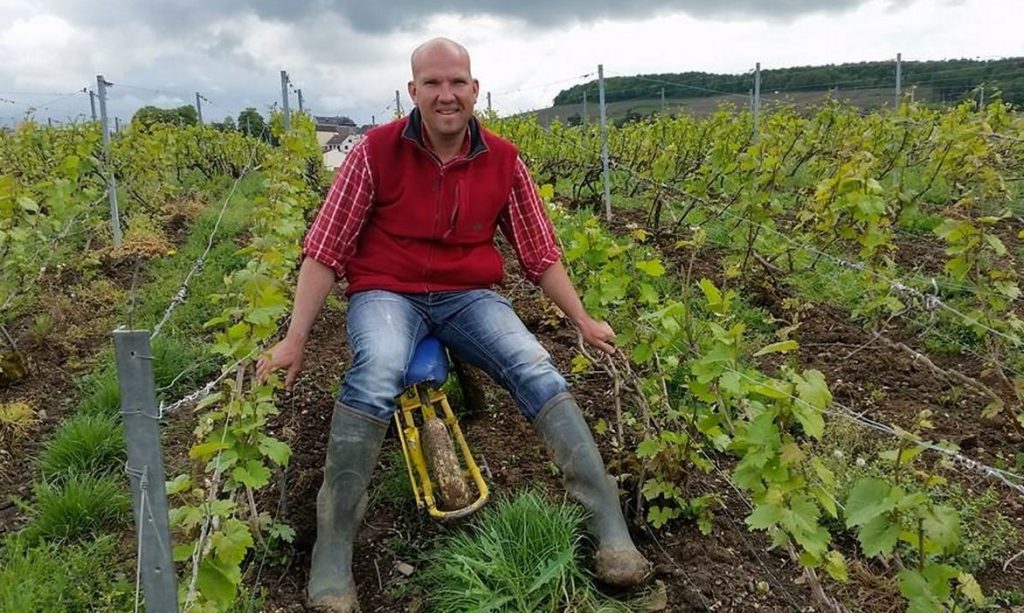
Dopo un apprendistato presso un viticoltore, Benoit ha creato una società di servizi per la manutenzione dei vigneti dei produttori locali. “Ma il mio sogno era un altro: lavorare i miei vigneti a modo mio e coltivare l’uva per creare uno Champagne che mi assomigliasse”. Così, poco prima del suo ventesimo compleanno, si è imbarcato in un’avventura che alcuni potrebbero definire un po’ folle, rilevando la tenuta di famiglia che forniva uva alle grandi case con lo scopo di guadagnarsi da vivere producendo e commercializzando il proprio Champagne. “È stata una sfida”, ricorda, “perché non avevamo né torchio, né cantine, né clienti. Ho convinto i miei genitori a rivolgersi a una cooperativa di Avize per vinificare le nostre uve in lotti separati e far maturare i vini in cantine moderne”.
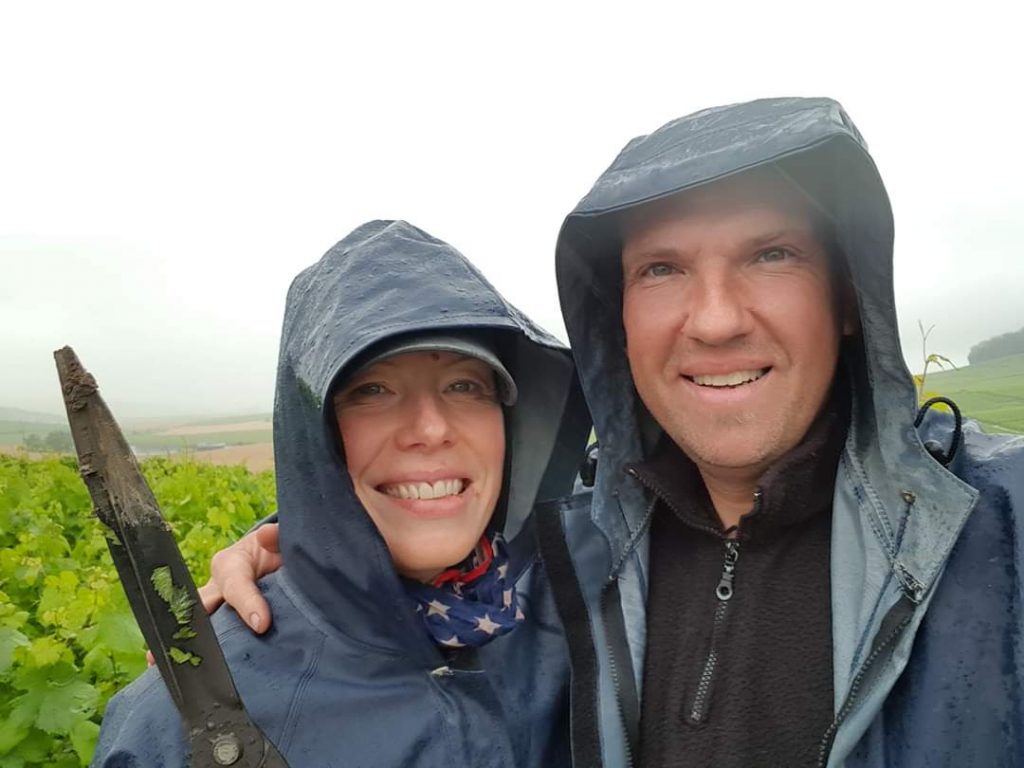
Nel 2011 si è unito a lui la moglie Séverine, che ha assunto le funzioni amministrative, lasciando Benoit libero di concentrarsi sui suoi vini e sulle sue vigne. Ha iniziato ad abbandonare la viticoltura convenzionale per concentrarsi su metodi rispettosi dell’ambiente, privilegiando il lavoro manuale e le misure preventive attraverso l’osservazione costante delle sue viti. Ha eliminato erbicidi, insetticidi, fungicidi e fertilizzanti, lavorando la terra a mano e lasciando crescere l’erba tra i filari per la gioia dei conigli selvatici che vi hanno stabilito la loro casa.
“Ciò che conta è avere un terreno vivo e sano che permetta alla vite di attingere l’energia e i minerali di cui ha bisogno”, dice Benoit, che si rifiuta di rivendicare qualsiasi certificazione biologica. “Ogni nuova stagione mi permette di mettermi in discussione, di aggiustare il tiro e di imparare sempre qualcosa di nuovo, lavorando le mie viti come ritengo opportuno, senza limitarmi a una dottrina, ma con discernimento, passione e responsabilità”.
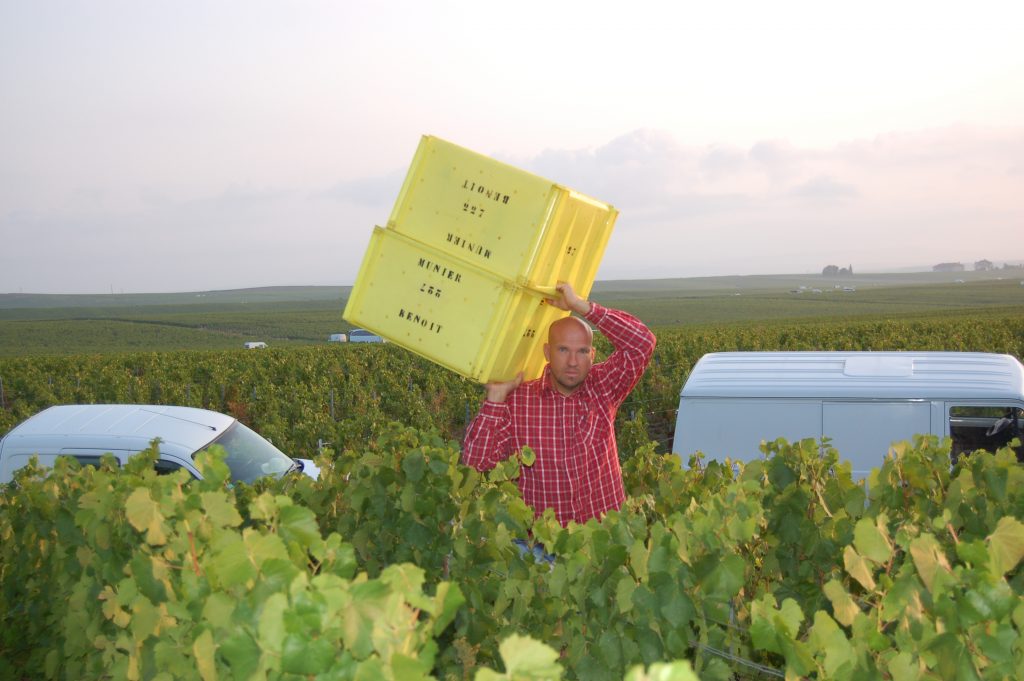
Come dice Séverine: “Cerca sempre di fare del suo meglio, sia in vigna che in cantina, è sempre alla ricerca dell’eccellenza ed è molto esigente, pensando costantemente a come migliorare questo o quell’aspetto del suo lavoro”. E aggiunge: “La parola che emerge più spesso quando parla della vite e del vino è: amore”.
Benoit Munier produce quattro tipi di Champagne: Brut Blanc de Blancs Grand Cru, Brut Blanc de Blancs Millésime Grand Cru, Brut Nature Blanc de Blancs Grand Cru e Brut Rosé Grand Cru. Tutti Chardonnay al 100%, tranne il Rosé, che comprende il 10% di Pinot Nero. E tutti sono pura espressione del lavoro, della dedizione e dell’amore che Benoit Munier ci mette, giorno dopo giorno.
ENGLISH
Champagne Benoit Munier: “A labor of love”
Benoit Munier declares that he was born to be a vigneron, combining a rigorous work ethic with a quest for excellence in a calling that his wife Séverine describes as “a labor of love.” The Munier winery at Cuis draws from 4 Grand Cru plots of 1.6 hectares total in the Côte des Blancs to produce about 7,000 bottles a year of Champagne made almost exclusively from Chardonnay.
Benoit Munier recalls his family’s roots in Champagne, beginning with his great-grandfather Constant Gendron, who in the 1930s acquired a plot and planted a vineyard at Bouzy. Although Bouzy is noted for Pinot Noir, Constant planted Chardonnay, setting a precedent that seems to have become a family trait: a nose for Chardonnay and taste for Blanc des Blancs. In the 1970s, Benoit’s mother, Marie-Claude, granddaughter of Constant Gendron, married Patrice Munier and they settled in the village of Cramant where they worked for Champagne houses, investing their savings in small plots of vines in the Côte des Blancs.
“I grew up in this wine atmosphere, following the rhythm of the seasons. I observed, I listened, I helped in the vineyards and wineries with the people of the village, gradually assimilating the spirit and the skills that are passed on from generation to generation. If for most children September signifies back to school, for me it’s associated with a magic word: vendange!”
Benoit recalls fondly “… the family picking, the snacks in the vineyards, the hauling of the grapes to the presses and the small glass of freshly squeezed grape juice are moments of life anchored in me. So, at 13, when the time came for choosing a school, it was obvious that I’d enroll at the CCPPA of Avize, now better known as the Avize Viti Campus.”
After an apprenticeship with a winemaker, Benoit created a service company to maintain vineyardss of local producers. “But, my dream was another: to work my own vines in my own way and grow grapes to create Champagne that resembles me.” So, just before his 20th birthday, he embarked on an adventure that “some might describe as a little bit crazy” to take over the family estate supplying grapes to large houses and to try to make a living producing and marketing his own Champagne. It was a bit of a challenge, he recalls, because we had no press, no cellars, no customers. He convinced his parents to turn to a cooperative at Avize to vinify their own grapes in separate batches and mature the wines in modern cellars.
In 2011, he was joined by his wife Séverine, who took over administrative duties, leaving Benoit free to concentrate on his wines and vines. He began moving away from conventional viticulture to concentrate on methods that respect the environment, favoring manual work and preventive measures by constant observation of his vines. He has eliminated herbicides, insecticides, fungicides and fertilizers, working the land by hand and allowing grass to grow amid the rows to the delight of rabbits who established their homes there.
“What matters is having a living, healthy soil that allows the vine to draw the energy and minerals it needs,” says Benoit, who refuses to claim any biological certification. “Each new season allows me to question myself, to adjust my experiences and learn a little more, working my vines as I see fit, without confining myself to a doctrine , but with discernment, passion and responsibility.”
As Séverine puts it, “He always tries to do his best, whether in the vineyard or cellar, he is always looking for excellence and is very demanding, always thinking about how to improve this or that aspect of his work.” She adds: “One word often comes up when he talks about the vines and wines: love.”
Benoit Munier produces four types of Champagne: Brut Blanc de Blancs Grand Cru, Brut Blanc de Blancs Millésime Grand Cru, Brut Nature Blanc de Blancs Grand Cru, and Brut Rosé Grand Cru. All are made from 100% Chardonnay except the Rosé, which includes 10% of Pinot Noir. And all are pure expressions of the work, dedication and love that Benoit Munier puts into them.